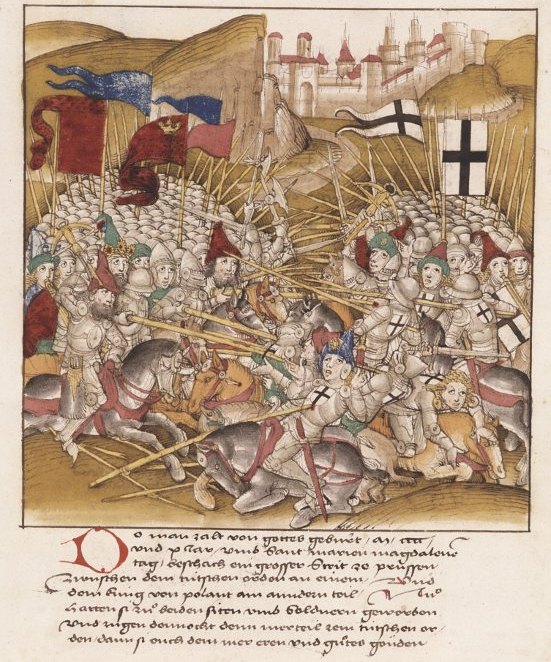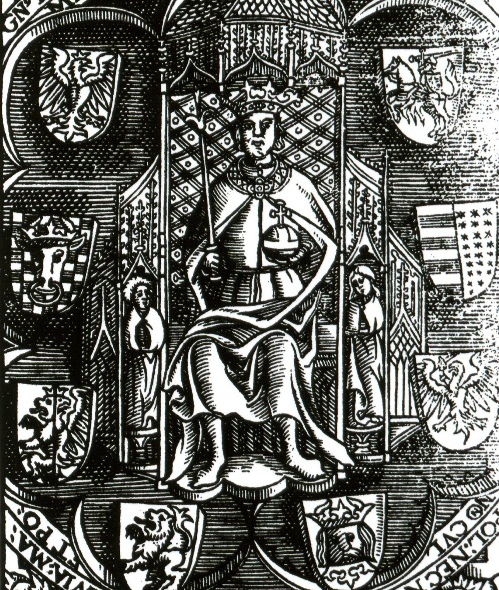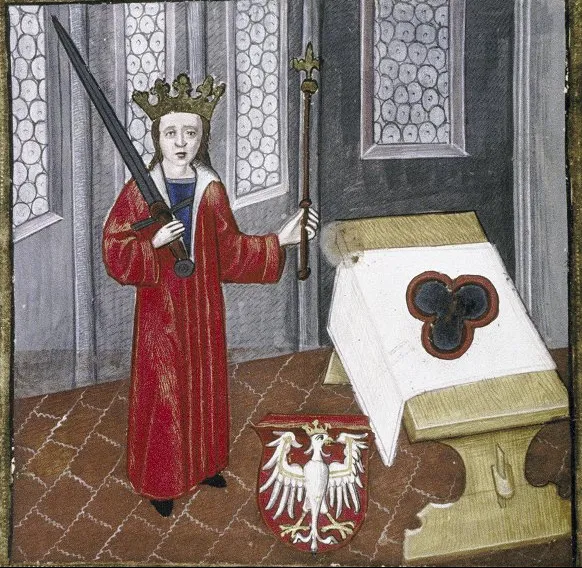|
Privilege Of Nieszawa
The Nieszawa Statutes () were a set of laws enacted in the Kingdom of Poland in 1454, in the town of Nieszawa located in north-central Poland. The King Casimir IV Jagiellon made a number of concessions to the Polish nobility and the gentry (szlachta) in exchange for their support in the Thirteen Years' War. Among other things, the Statutes required the King to seek the lords' approval when issuing new laws, when levying the mobilisation of armed forces (pospolite ruszenie), or when imposing new taxes. The Statutes strengthened the position of some of the nobility at the expense of less agreeable estates. With the Statute of Nieszawa, King Casimir (1427–1492) – who was a brother of Władysław III of Poland Władysław III of Poland (31 October 1424 – 10 November 1444), also known as Ladislaus of Varna, was King of Poland and Union of Horodło, Supreme Duke of the Grand Duchy of Lithuania from 1434 as well as King of Hungary and List of duk ... (1424–1444), the new ... [...More Info...] [...Related Items...] OR: [Wikipedia] [Google] [Baidu] [Amazon] |
Kingdom Of Poland Of The Jagiellons
The rule of the Jagiellonian dynasty in Poland between 1386 and 1572 spans the Late Middle Ages and the Early Modern Period in European history. The Grand Duke of Lithuania, Lithuanian Grand Duke Jogaila (Władysław II Jagiełło) founded the dynasty; his marriage to Queen Jadwiga of Poland in 1386 strengthened an ongoing Polish–Lithuanian union. The partnership brought vast territories controlled by the Grand Duchy of Lithuania into Poland's sphere of influence and proved beneficial for both the Polish people, Polish and Lithuanian people, who coexisted and cooperated in one of the largest personal union, political entities in Europe for the next four centuries. In the Baltic Sea region, Poland engaged in ongoing conflict with the Teutonic Knights. The struggles led to a major battle, the Battle of Grunwald of 1410, but there was also the milestone Second Peace of Thorn (1466), Peace of Thorn of 1466 under King Casimir IV Jagiellon; the treaty defined the basis of the futur ... [...More Info...] [...Related Items...] OR: [Wikipedia] [Google] [Baidu] [Amazon] |
Nieszawa
Nieszawa (Polish pronunciation: ) is a town and a commune in the Kuyavian-Pomeranian Voivodeship, in north-central Poland. As of June 30, 2014, the town has a population of 1,985 people. It is located in the historic region of Kuyavia. History The Statutes of Nieszawa, enacted in this town at 1454, have a significance in Polish legal and social history. Nieszawa was granted town rights in 1460. In the following centuries it was a royal city in Poland, royal town of the Crown of the Kingdom of Poland, Kingdom of Poland, administratively located in the Brześć Kujawski County in the Brześć Kujawski Voivodeship in the Greater Poland Province, Crown of the Kingdom of Poland, Greater Poland Province. According to the 1921 Polish census, 1921 census, the town had a population of 2,381, 90.7% Polish people, Polish and 7.4% Jews, Jewish. Following the joint German-Soviet invasion of Poland, which started World War II in September 1939, the town was invaded and then Occupation of Po ... [...More Info...] [...Related Items...] OR: [Wikipedia] [Google] [Baidu] [Amazon] |
Casimir IV Jagiellon
Casimir IV (Casimir Andrew Jagiellon; ; Lithuanian: ; 30 November 1427 – 7 June 1492) was Grand Duke of Lithuania from 1440 and King of Poland from 1447 until his death in 1492. He was one of the most active Polish-Lithuanian rulers; under him, Poland defeated the Teutonic Knights in the Thirteen Years' War and recovered Pomerania. The Jagiellonian dynasty became one of the leading royal houses in Europe. The great triumph of his reign was bringing Prussia under Polish rule. The rule of Casimir corresponded to the age of "new monarchies" in western Europe. By the 15th century, Poland had narrowed the distance separating it from Western Europe and became a significant power in international relations. The demand for raw materials and semi-finished goods stimulated trade, producing a positive balance, and contributed to the growth of crafts and mining in the entire country. He was a recipient of the English Order of the Garter (KG), the highest order of chivalry and the most ... [...More Info...] [...Related Items...] OR: [Wikipedia] [Google] [Baidu] [Amazon] |
Szlachta
The ''szlachta'' (; ; ) were the nobility, noble estate of the realm in the Kingdom of Poland, the Grand Duchy of Lithuania, and the Polish–Lithuanian Commonwealth. Depending on the definition, they were either a warrior "caste" or a social class, and they dominated those states by exercising szlachta's privileges, political rights and power. Szlachta as a class differed significantly from the Feudalism, feudal nobility of Western Europe. The estate was officially abolished in 1921 by the March Constitution (Poland), March Constitution."Szlachta. Szlachta w Polsce" ''Encyklopedia PWN'' The origins of the ''szlachta'' are obscure and the subject of several theories. The ''szlachta'' secured Golden Liberty, substantial and increasing political power and rights throughout its history, begin ... [...More Info...] [...Related Items...] OR: [Wikipedia] [Google] [Baidu] [Amazon] |
Thirteen Years' War (1454–66)
Thirteen Years' War may refer to: *the Thirteen Years' War (1454–1466) between the Prussian Confederation and Poland versus the Teutonic Order state *the Long Turkish War (1593–1606) between the Habsburg Monarchy and the Ottoman Empire *the Russo-Polish War (1654–1667) Armed conflicts between Poland (including the Polish–Lithuanian Commonwealth and the Crown of the Kingdom of Poland) and Russia (including the Soviet Union, the Russian Empire, the Tsardom of Russia and the Principality of Moscow) include: : : ... between Russia, the Cossacks and the Polish–Lithuanian Commonwealth See also * Fifteen Years War (other) {{dab ... [...More Info...] [...Related Items...] OR: [Wikipedia] [Google] [Baidu] [Amazon] |
Pospolite Ruszenie
''Pospolite ruszenie'' (, lit. ''mass mobilization''; "Noble Host", , the French term ''levée en masse'' is also used) was the wartime mobilisation of all or a specific part of able-bodied male population of the state into armed forces during the period of the Kingdom of Poland and the Polish–Lithuanian Commonwealth. The tradition of wartime mobilisation of part of the population existed from before the 13th century to the 19th century. In the later era, ''pospolite ruszenie'' units were formed from the ''szlachta'' (Polish "nobility"). The ''pospolite ruszenie'' was eventually outclassed by professional forces. Rise Before the 13th century, the feudal levy of knights was the customary method employed in the raising of Polish armies in the Kingdom of Poland of the Late Middle Ages. The earliest mentions of the term can be traced to the reign of Władysław I the Elbow-high (1320–1333). Statutes of Casimir the Great made the service in the military obligatory for all kn ... [...More Info...] [...Related Items...] OR: [Wikipedia] [Google] [Baidu] [Amazon] |
Władysław III Of Poland
Władysław III of Poland (31 October 1424 – 10 November 1444), also known as Ladislaus of Varna, was King of Poland and Union of Horodło, Supreme Duke of the Grand Duchy of Lithuania from 1434 as well as King of Hungary and List of dukes and kings of Croatia, Croatia from 1440 until his death at the Battle of Varna. He was the eldest son of Władysław II Jagiełło (Jogaila) and the Lithuanian noblewoman Sophia of Halshany. Władysław's succeeded his father shortly before turning ten in 1434 and was, therefore, deemed unfit to rule until coming of age. Cardinal Zbigniew Oleśnicki (cardinal), Zbigniew Oleśnicki acted as regent and a temporary ''provisores'' council executed power in the king's name. However, Władysław's legitimacy to the crown was contested by Lesser Poland, Lesser Polish nobles favouring the candidacy of Siemowit V of Masovia, who was of Piast dynasty, Piast lineage. In the aftermath of the coronation, Spytko III of Melsztyn accused Oleśnicki, th ... [...More Info...] [...Related Items...] OR: [Wikipedia] [Google] [Baidu] [Amazon] |
Zbigniew Oleśnicki (cardinal)
Zbigniew Oleśnicki (; 5 December 1389 – 1 April 1455), known in Latin as Sbigneus, was a high-ranking Roman Catholic clergyman and an influential Polish statesman and diplomat. He served as Bishop of Kraków from 1423 until his death in 1455. He took part in the management of the country's most important affairs, initially as a royal secretary under King Władysław II Jagiełło and later as the effective regent during King Władysław III's minority. In 1439 he became the first native Polish cardinal. Biography Shortly before his birth his father, Jan Oleśnicki, was dispatched by king Władysław Jagiełło to serve as captain of Vilnius and to bring a detachment of knights there. At the beginning of the Lithuanian Civil War the city was under the governance of the Polish king's brother, Skirgaila, and came under siege by the combined forces of the pagan Samogitians under Jagiello's cousin and rival Vytautas and the army of the Teutonic Order with their guest crus ... [...More Info...] [...Related Items...] OR: [Wikipedia] [Google] [Baidu] [Amazon] |
Piotrków Statutes
Piotrków may refer to the following places in Poland: *Piotrków Voivodeship, a former administrative division in Poland (1975-1998) *Piotrków County, an administrative division in Poland *Piotrków Trybunalski, a city in Piotrków County (and formerly in Piotrków Voivodeship), Poland * Piotrków Kujawski, a city in Gmina Piotrków Kujawski in Radziejów County, Kuyavian-Pomeranian Voivodeship *Piotrków Pierwszy Piotrków Pierwszy is a village in the administrative district of Gmina Jabłonna, Lublin Voivodeship, Gmina Jabłonna, within Lublin County, Lublin Voivodeship, in eastern Poland. It lies approximately south-east of Jabłonna, Lublin Voivodeship ..., a village in Gmina Jabłonna in Lublin County, Lublin Voivodeship * Piotrków Drugi, a village in Gmina Jabłonna * Piotrków-Kolonia, a village in Gmina Jabłonna {{Disambiguation, geo ... [...More Info...] [...Related Items...] OR: [Wikipedia] [Google] [Baidu] [Amazon] |
1450s In Law
*
{{Number disambiguation ...
145 may refer to: *145 (number), a natural number *AD 145, a year in the 2nd century AD *145 BC, a year in the 2nd century BC *145 (dinghy), a two-person intermediate sailing dinghy *145 (South) Brigade, a regional brigade of the British Army that saw active service in both the First and the Second World Wars *145 (New Jersey bus), a New Jersey Transit bus route *145 Adeona, a main-belt asteroid *Alfa Romeo 145, a 3-door hatchback *Honda 145, a compact car See also * List of highways numbered 145 The following highways are numbered 145: Australia * Lower Barrington Road, Paloona Road, Melrose Road, Bellamy Road, Forthside Road (Tasmania) * Inverleigh–Winchelsea Road (Victoria) Canada * Winnipeg Route 145 * New Brunswick Route 145 * ... [...More Info...] [...Related Items...] OR: [Wikipedia] [Google] [Baidu] [Amazon] |
1454 In Europe
Year 1454 ( MCDLIV) was a common year starting on Tuesday of the Julian calendar. Events January–December * February 4 – Thirteen Years' War: The Secret Council of the Prussian Confederation sends a formal act of disobedience to the Grand Master, and the citizens of Toruń rebel against the Teutonic Knights, beginning the conflict. * March 6 – Casimir IV of Poland renounces allegiance to the Teutonic Knights. * March 27 – Richard Plantagenet, Duke of York, becomes Protector for King Henry VI of England, who is in a catatonic state. * April 9 – Treaty of Lodi: Francesco Sforza forms a triple alliance between the Duchy of Milan, the Republic of Florence and Kingdom of Naples. * August – In Moldavia, Petru Aron retakes the throne from Alexăndrel. * September 18 – Thirteen Years' War – Battle of Chojnice: The Polish army is defeated by a smaller but more professional Teutonic army. * October 9 – Thirteen Years' War: M ... [...More Info...] [...Related Items...] OR: [Wikipedia] [Google] [Baidu] [Amazon] |


